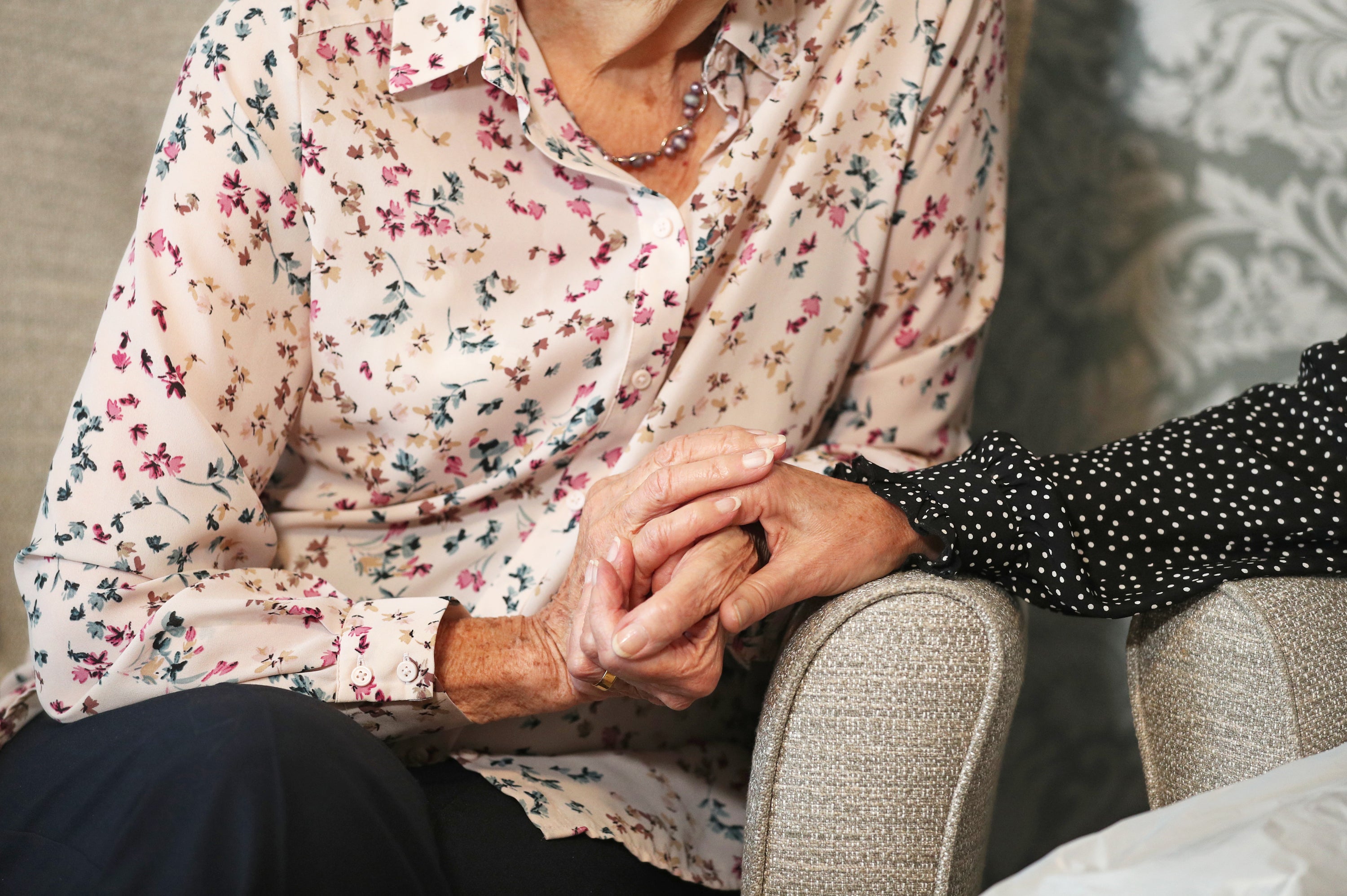Human rights of elderly and disabled people ‘not fairweather luxuries’
A coalition of groups has written to local health and care leaders calling on them to ensure that care home visiting restrictions are proportionate.

The human rights of elderly and disabled people “are not fairweather luxuries”, an MP has said as she told of how she fears being separated indefinitely from her mother who has dementia.
Plaid Cymru’s Westminster leader, Liz Saville Roberts told the House of Commons her mother, Dr Nancy Saville, was diagnosed with dementia just before Christmas.
She said she was called to sit with her in hospital on Monday due to coronavirus-related staff shortages.
But she fears that the pair “are likely to be separated indefinitely” when her mother moves into a care home.
Addressing Boris Johnson during Prime Minister’s Questions, she said: “In reality, there remain many care homes and hospitals where even the most minimal visits can be denied – leading to isolation and separation, which cause irreversible damage to well-being.
“Does he agree with me that the human rights of disabled people, sick people and the elderly are not fairweather luxuries, and that everyone with dementia, wherever they live, has the right to family life?”
Extending his “deepest sympathies”, Mr Johnson said he understands the “particular distress and anxiety” the circumstances must be causing.
He said: “I know how her feelings must be exacerbated by the difficulties that so many people up and down the country are facing because of the restrictions we’re having to put on, on care homes, and I sympathize deeply.
“We do have to try to strike a balance and to keep care home residents safe and do what we can to prevent the epidemic from taking hold in care homes.”
It comes as a coalition of groups has written to local health and care leaders calling on them to ensure that restrictions on contact are proportionate.
A dozen care leaders have signed the letter, which sets out how every care home resident should be able to nominate a loved one as an essential caregiver (ECG) who can continue providing support even if the home is in outbreak.
The latest Government guidance, updated in December in the light of the spread of Omicron, restricts the number of regular visitors a resident can receive to three, plus an ECG.
Currently, if a home has two or more confirmed Covid cases, outbreak measures such as closing to new admissions and restricting most indoor visits can remain in place for 28 days.
ECGs should be able to continue visiting indoors, the guidance says.
But the groups say the role is still not well understood and some providers experiencing outbreaks have misinterpreted public health advice, resulting in ECGs being unable to visit.
Helen Wildbore, director of the Relatives & Residents Association who helped coordinate the letter, said people with dementia “think they’ve been abandoned”.
She said: “Untold damage to health and wellbeing is being caused by the response to the pandemic, in the name of keeping people safe.
“For people living in care away from their families, contact with them becomes all the more important yet they have faced far more stringent restrictions than the rest of the country.”
Jenny Morrison, co-founder of Rights for Residents, added: “The impact of loneliness and isolation has far outweighed the impact of Covid, on care home residents, in the later part of the pandemic.
“We need to ensure that measures put in place to protect residents are proportionate to the current situation.”
Dr Caroline Emmer De Albuquerque Green of King’s College London said spending time with loved ones is “not a matter of luxury – it is a matter of life and death” and people have a “fundamental human right” to family life.
Bookmark popover
Removed from bookmarks